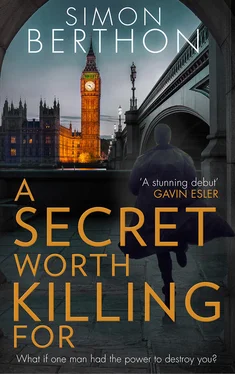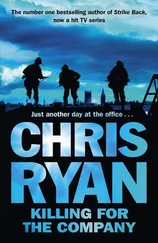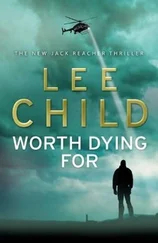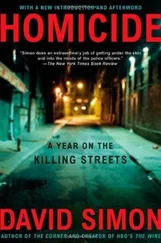Later that day, she sees a solicitor and offers the same account she’s given her interrogators. They were right; the solicitor tells her the evidence, the coincidence of timing are stacked against her. The rape allegation gives her a chance, but only a small one. She’s come up with it late and there’s not even any bruising.
Maire knows only one thing for certain. It looks like they don’t have anything on Joseph. If she grasses – tells them Joseph did it – and his friends find out, she’s dead. There’s no greater sin than to turn informer. Not even Martin could save her – probably wouldn’t even want to. The story always has the same ending. A lonely grave in some anonymous damp patch of field.
The next day, another spell in the interview room, this time with her solicitor present. Her interrogators arrive together and say nothing. Instead they produce a pair of shoes from a bag, the shoes she wore on the night, and hand them to her.
‘We’ve cleaned them for you, Maire,’ says one. ‘You can have them back after the trial if your prison governor allows it.’
‘Careless of your friends to leave them behind,’ says the other. They walk out with a mocking grin.
‘Might be best to own up, Maire,’ says the solicitor later. ‘Say you knew nothing about the plan to kill him. We’d go for aiding and abetting an abduction. You might get away with five years. You’d only serve half.’
Her third night in the cell is the worst. All exits are closed and it seems a one-way street to conviction and branding as a criminal. If she confesses, the full dirtiness of what she’s done need not be revealed. Her ma and da can be spared that shame. After more than two decades of the ‘war’, her community will understand her getting caught up in it. Though what a pity, they’ll say, that clever little Maire McCartney, with the whole world at her fingertips, chose to spoil everything.
What if there’s not even that deal without their piece of flesh? Everything she knows about Joseph. The names of his friends. She feels a shiver of terror.
By the night’s end, she’s come to one conclusion. She’s not a committed warrior willing to spend a lifetime in prison for the ‘cause’. She doesn’t know where it will lead – but it’s time to negotiate and see what cards she’s got left to play.
A woman police officer arrives with breakfast.
‘I’ve been thinking,’ says Maire. ‘I wanna speak to my solicitor.’
‘That won’t be necessary,’ says the woman.
‘Whaddya mean? I’ve made a decision. I need to see her.’
‘No, you don’t. You’re leaving.’
‘What?’
‘I said you’re leaving. Seems like you’re a lucky girl.’
‘You joking? That’s bad taste . . .’
‘It’s not a joke, Maire. Pack your things, your da’s coming to fetch you.’
An hour later she finds herself walking past the front desk and out to the car park. It’s a journey of utter unreality. Maybe it’s some kind of trap. But there, in the flesh, is her da. Stephen has been allowed through the gates and security barriers and is waiting. As she nears the car, he gets out and hugs her. They drive in silence, no questions asked, no answers given. When they arrive home, it’s the same, her mother waiting quietly for her.
‘Welcome home, love.’ It’s all she says.
That evening, Martin comes for tea, the entrance as nonchalant as ever, the chitchat light and jokey. In front of her parents, no reference is made to the last three days. As they’re clearing the plates, she catches Martin nodding at them. They retreat to the kitchen to wash up. He closes the door behind them.
‘You’ll get your scholarship at Trinity, you’re that smart,’ he begins. ‘Working-class Catholic girl from the North – just what they need to move with the times. But you’ll leave this city and head down to Dublin now. I got friends who’ll put you up till we find you something permanent. Only a couple of months now. Maybe you can take some time abroad. I’ll see if I can raise some money.’
‘Did you know, Martin?’ she asks.
‘Know what?’ He sounds sharp, hard even. It’s unlike him.
‘Joseph said you approved it. I mean using me.’
He shakes his head slowly, closing his eyes and rubbing them with his hands. ‘Jesus, Maire, you should know me better. I’m not even going to discuss that.’
‘Well, he said you would.’
‘He said that?’
‘Yes.’ Her brother says nothing. ‘And the plan itself? Seducing him? Shooting him?’
‘Don’t go there. It’s past now.’
‘Joseph told me it was just to interrogate him.’
‘Fuck’s sake, Maire, you’re not that naïve.’
She wants to cry but mustn’t let herself. ‘I believed him, Martin. He promised. He said it was propaganda. To show they could run a Special Branch man out of town.’
‘He said that?’
‘Yes. Several times over.’
‘OK.’ He shakes his head and looks away from her. ‘Look here, Maire, I’m not going to piss on Joseph. He’s important in the movement. You can’t expect me to do that.’
‘I wanna see him. Ask him myself.’
‘That won’t be possible.’ His eyes pierce her in that way she knows he won’t be contradicted. She looks down, silent. ‘You’re not to see him again, Maire. There’s to be no contact ever again. From you or from him.’
She feels tears welling and tries to suppress them. There’s no point in arguing. Instead she asks the obvious question. ‘Why did they let me go?’
‘You’re small fry, they’ve bigger fish. Maybe they didn’t have enough on you. Maybe they wanna see where you’ll lead them. Use you as bait against your own side. That’s why you gotta leave. That’s a reason you can never see Joseph again.’ He pauses. ‘Not the only one, mind.’ She feels herself crushed. ‘And there’s another thing, Maire. Some will say they only let you go ’cos you grassed. Another reason you gotta go.’
‘Jesus, Martin, you should know me better than that.’ She grimaces. ‘Christ, that’s what you just said, isn’t it?’ He doesn’t answer – there’s nothing more to say. Her destiny, for now, is out of her hands. ‘OK, when?’
‘Tomorrow.’
‘Tomorrow!’
‘That’s right. You better start packing.’ Her brother grasps her shoulders and speaks with a searing passion. ‘You were never meant for this, Maire. You’re the lawyer. Maybe politics one day. You’re the ballot, not the bullet. Never forget that.’
The next morning, her father drives her to Victoria Bus Station to catch the express coach to Dublin. She’s been given an address and fifty pounds. She’s never felt so alone.
A few days later, Martin visits her in Dublin. It’s been arranged that she’ll live with a Mrs Bridget Ryan, whose daughter, Bernadette, is serving time for possessing explosives. As a contribution to her board and lodging, Maire will help look after Bernadette’s three children. The husband’s no good – he was once in the movement but forced out because of his drinking. The arrangement will last the full three years of Maire’s degree.
‘You can call it your prison if you want,’ says Martin, ‘but it’ll give you a better chance than the real thing. Now, you, work hard. Don’t socialize. Don’t look for friends. No boyfriends. Trust no one. Get your degree. And then get the fuck out of this island and make something of your life.’
As she watches him disappear, Maire begins to understand the worst of what she’s done. It’s not about being used, or luring a Brit peeler to his death, or shaming her parents, or losing Joseph.
It’s that she made an error. A huge, life-changing, potentially life-destroying error. If she’s managed to get away with it, if she’s been given a second chance, she promises herself one thing.
Читать дальше












